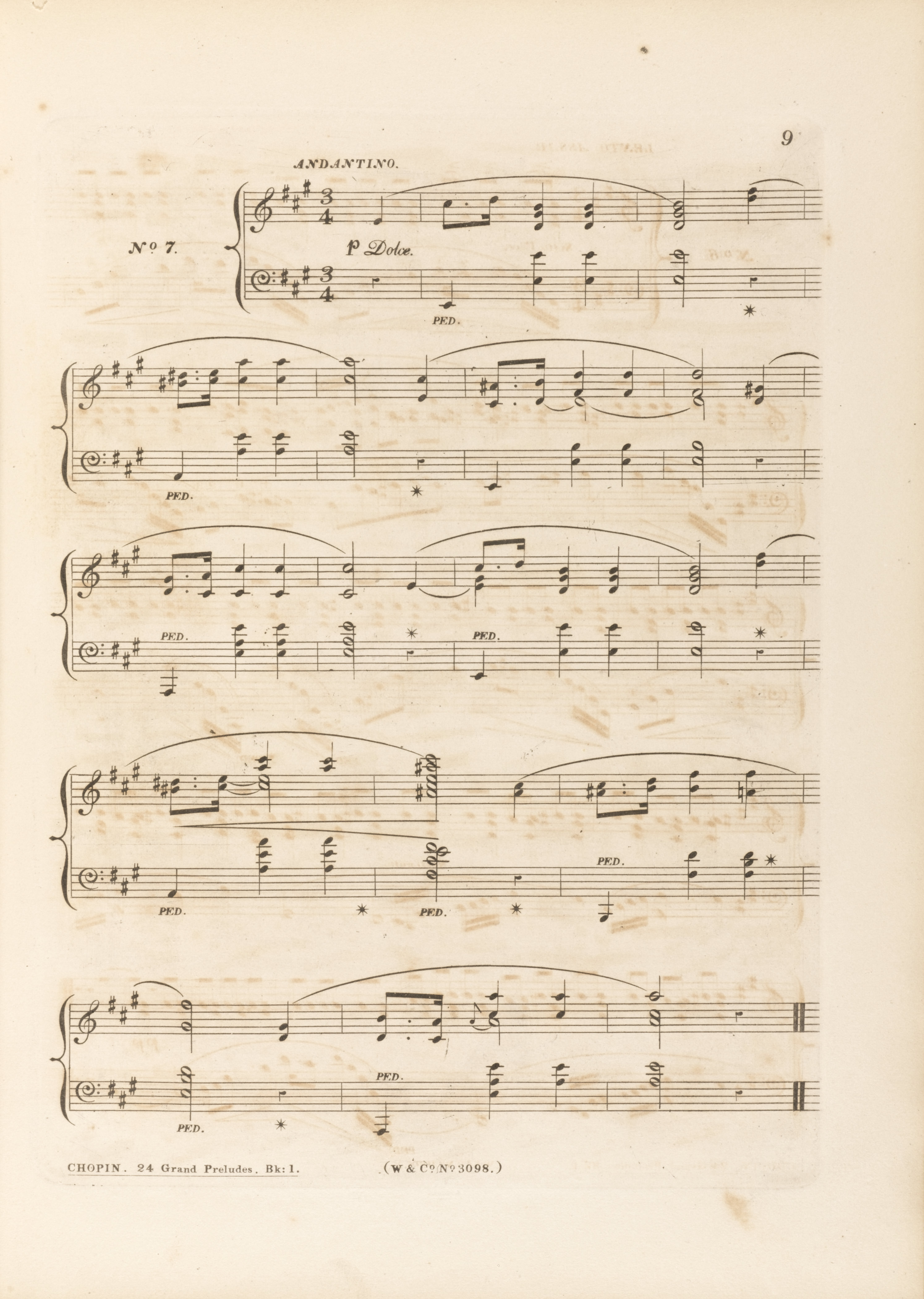



The placement of the  marks in b. 5, 7, 9 and 13 in CXI could be considered an inaccuracy, forced by the low position of the bass notes; however, when implemented accurately, such a pedalling ensures a full and clear sound of an entire chord, preserving the bass note without disturbing the melodic notes. One could easily expect such a subtlety from Chopin, cf., e.g. the Mazurka in G Major, Op. 50 No. 1, b. 103. A possible reason for abandoning that detail in the version prepared for print could have been a faster tempo, which would inhibit a precise performance of that detail.
marks in b. 5, 7, 9 and 13 in CXI could be considered an inaccuracy, forced by the low position of the bass notes; however, when implemented accurately, such a pedalling ensures a full and clear sound of an entire chord, preserving the bass note without disturbing the melodic notes. One could easily expect such a subtlety from Chopin, cf., e.g. the Mazurka in G Major, Op. 50 No. 1, b. 103. A possible reason for abandoning that detail in the version prepared for print could have been a faster tempo, which would inhibit a precise performance of that detail.
The oversight of the  marks is probably an inaccuracy of the copyist, who remembered them in the second line of the text (b. 9-16). However, it is also likely that such a simplified notation was used by Chopin himself (provided that CXI was based on a lost authentic source).
marks is probably an inaccuracy of the copyist, who remembered them in the second line of the text (b. 9-16). However, it is also likely that such a simplified notation was used by Chopin himself (provided that CXI was based on a lost authentic source).
The missing pedalling indications in CGS – see b. 3-4. The oversight of the engraver of EE1 was rectified in EE2.
Compare the passage in the sources »
category imprint: Differences between sources
issues: EE revisions, Errors in EE
notation: Pedalling

